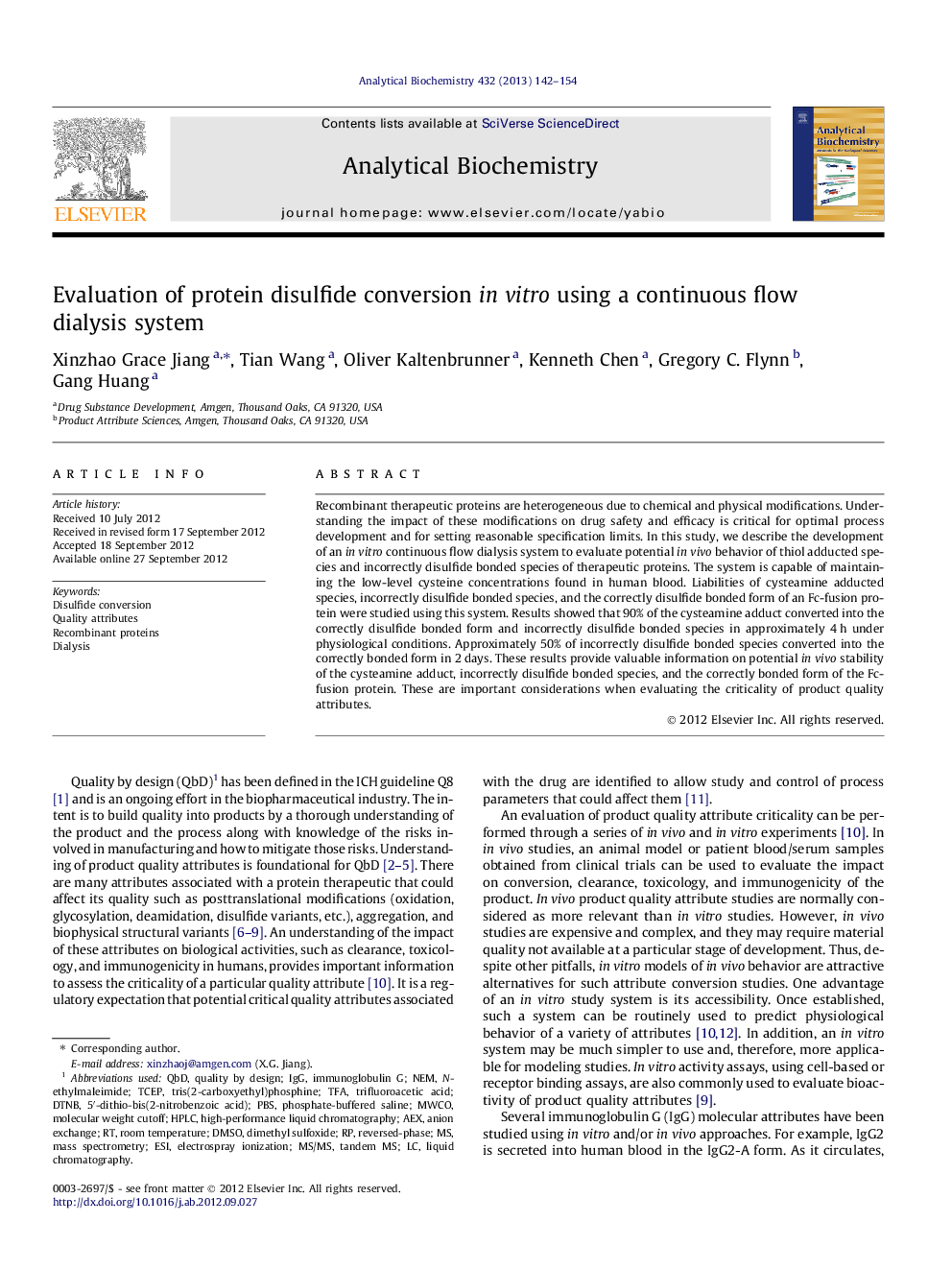| Article ID | Journal | Published Year | Pages | File Type |
|---|---|---|---|---|
| 1176508 | Analytical Biochemistry | 2013 | 13 Pages |
Recombinant therapeutic proteins are heterogeneous due to chemical and physical modifications. Understanding the impact of these modifications on drug safety and efficacy is critical for optimal process development and for setting reasonable specification limits. In this study, we describe the development of an in vitro continuous flow dialysis system to evaluate potential in vivo behavior of thiol adducted species and incorrectly disulfide bonded species of therapeutic proteins. The system is capable of maintaining the low-level cysteine concentrations found in human blood. Liabilities of cysteamine adducted species, incorrectly disulfide bonded species, and the correctly disulfide bonded form of an Fc-fusion protein were studied using this system. Results showed that 90% of the cysteamine adduct converted into the correctly disulfide bonded form and incorrectly disulfide bonded species in approximately 4 h under physiological conditions. Approximately 50% of incorrectly disulfide bonded species converted into the correctly bonded form in 2 days. These results provide valuable information on potential in vivo stability of the cysteamine adduct, incorrectly disulfide bonded species, and the correctly bonded form of the Fc-fusion protein. These are important considerations when evaluating the criticality of product quality attributes.
